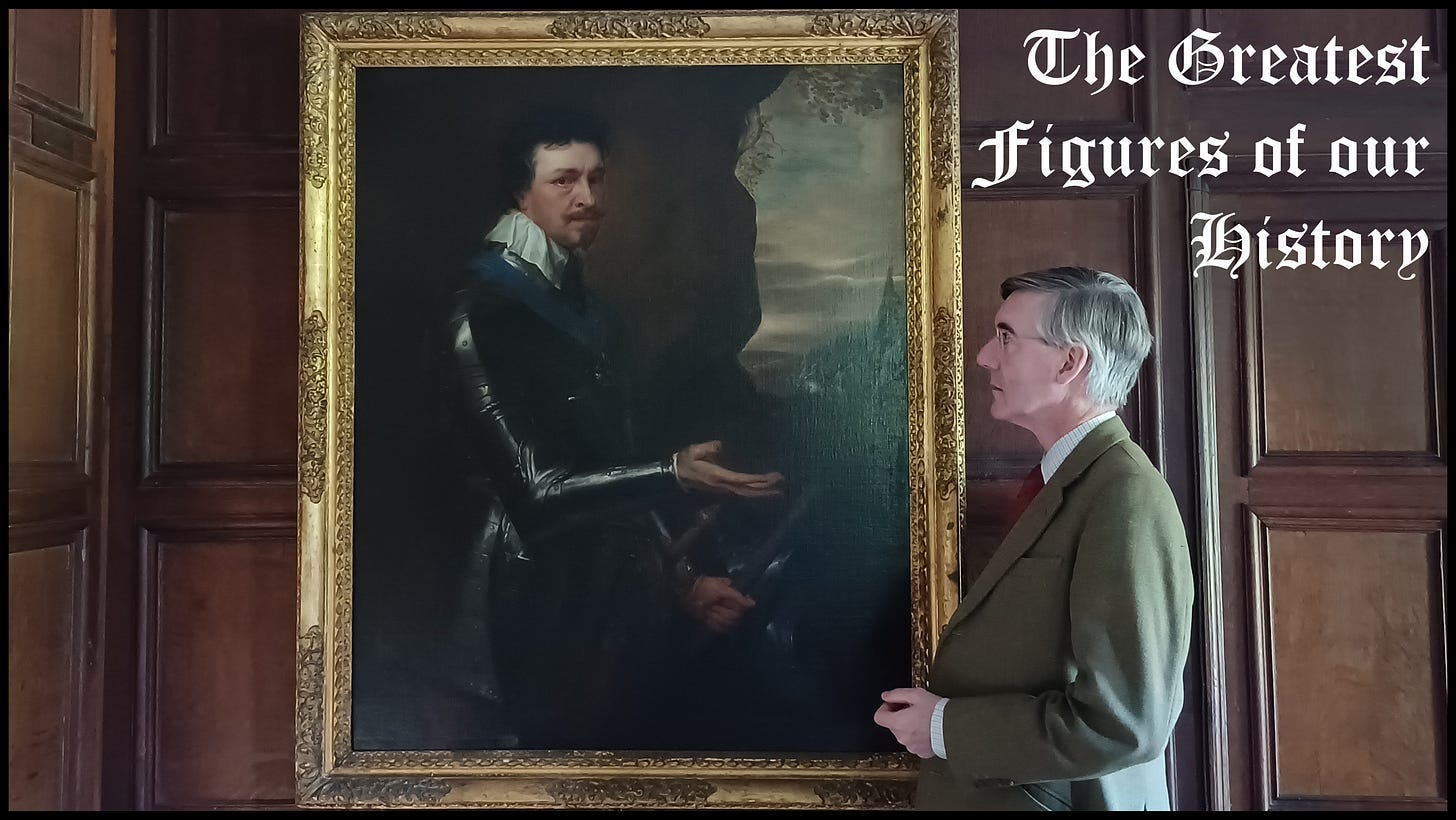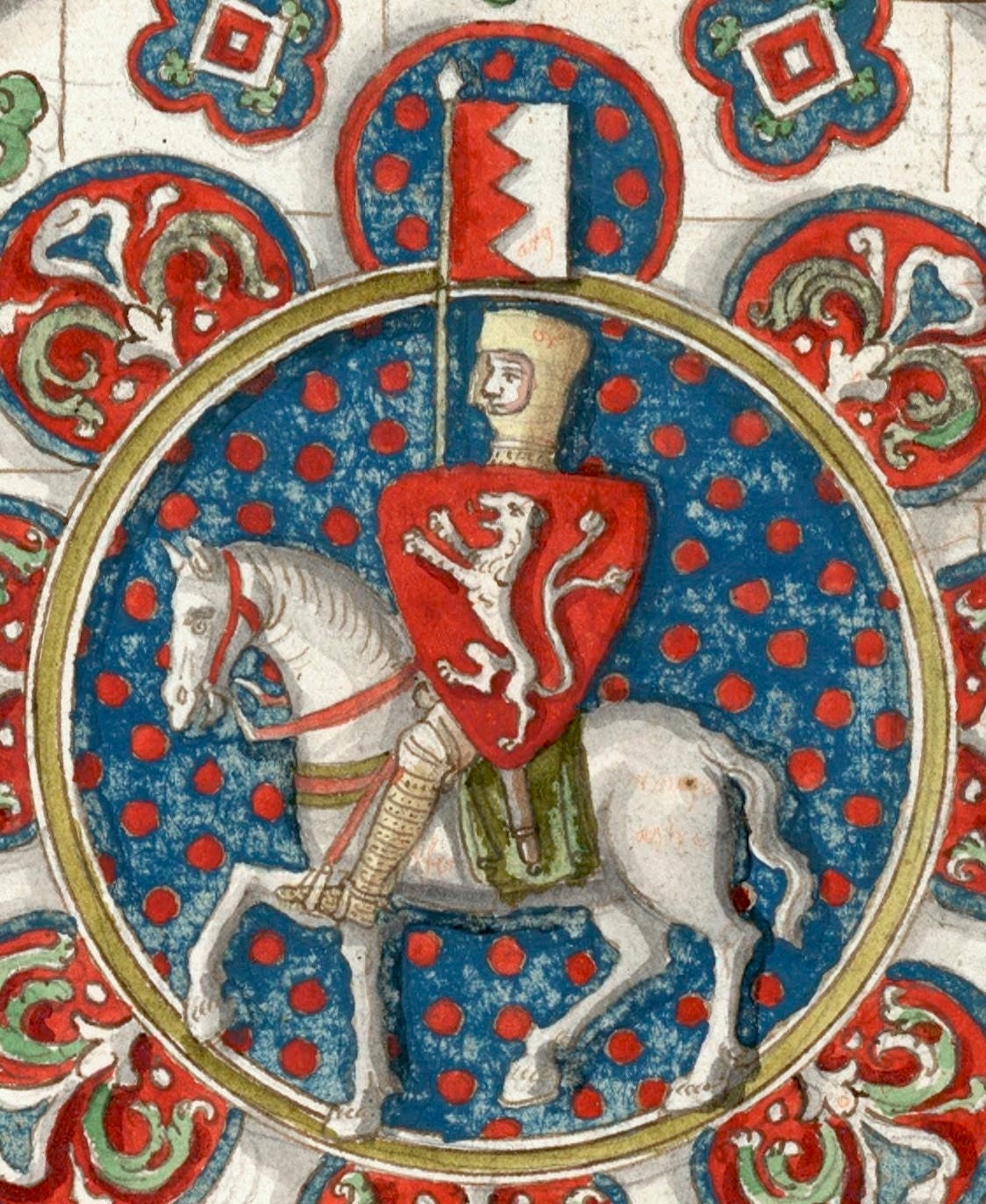Simon de Montfort
A 13th century Baron who accidentally created the House of Commons
Inevitably, one of the greatest contributors to the English, and subsequently British, Constitution was French.
Simon de Montfort was born in Montfort-l’Amaury, around 1208, to his namesake father and mother, Alix de Montmorency. Nonetheless, the family had extensive lands in England and, in 1229, Simon sought to persuade Henry III to restore him to his title as Earl of Leicester, as well as his lands. He also married the King's sister, Eleanor of England and, with lands and a royal wife, made his life as an English nobleman, while his elder brother, Amaury, inherited the family estate in France.
Henry III was the son of King John, and acceded to the throne as a child. His reign was the longest of an English monarch, at fifty-six years, until that of George III, 1760 to 1820. For the Middle Ages it was a remarkably long time, especially for an inadequate king. He was a great aesthete, and famous for his expensive work on Westminster Abbey, but he was not a successful ruler. His relationship with his brother-in-law was difficult, although there were periods when they worked together.
As the son of King John, who agreed to the Magna Carta in 1215, he was the first English king whose reign began with the explicit understanding that he was a king under the law, and that basic legal principles applied to him too. He also began his reign in the knowledge that the barons were collectively powerful.
Unfortunately, Henry ignored the provisions of Magna Carta and tried to rule arbitrarily. This was unpopular, as was his reliance on foreign advisers and his extravagance. Any medieval king who failed at foreign wars found the cost of his domestic projects subject to criticism, and Henry III's expensive and foolish efforts to obtain the kingdom of Sicily for his younger son, Edmund, combined with perhaps more reasonable efforts to win back land lost by his father in France, alienated the barons, as well as everyone else forced to pay tax.
This is how Simon de Montfort became so important. Although some barons saw him as close to the King because of his familial links, he was soon effectively leader of the not-so-loyal opposition. He was opposed to higher taxes and was instrumental in the drawing up of the Provisions of Oxford.
Every schoolboy, or indeed schoolgirl, ought to know as much about the Provisions of Oxford as they know about Magna Carta. They are of fundamental importance to the development of the realm and of the Constitution that we enjoy to this day.
These Provisions, in 1258, sought to ensure that the King acted with the advice of his ministers and with Parliament. They were annulled in 1266, after the King had defeated de Montfort, and this is maybe why they are forgotten, but Magna Carta was similarly repudiated before it was reconfirmed and passed by Parliament several times in the century after its acceptance. Likewise, the Provisions of Oxford became the Statute of Marlborough in 1267, parts of which are still the law of the land.
It can be seen as a foundational constitutional document, both for the United Kingdom and the United States. It wanted Parliament to sit three times a year and it sought independence of the judiciary with the recreation of the Office of Justicia. It was the earliest embryonic beginnings of the concept of a separation of the executive legislature and the judiciary. This became the doctrine of the separation of powers in the US, whilst in the UK it evolved into parliamentary sovereignty, with an almost trinitarian aspect. One body, but with three parties contained within it.
The Statute of Marlborough reconfirmed both the Magna Carta and the Charter of the Forest, and was the first time that the Constitution was changed by statute. This is what makes it, rather than the Magna Carta, the foundational document of the principle of parliamentary sovereignty. It was not merely a royal charter, but the expression of the highest law by the King in Parliament, the body that is still the highest law-making body in the land, and it came about because of Simon de Montfort, both in its form and in the structure of the body which approved it.
The other fundamental change brought about by de Montfort was the calling of the first Borough members to attend the House of Commons, on 20th January, 1265. This assembly, although called in the name of the King, was de Montfort's Parliament. It essentially created the House of Commons in the form we know it today.
For the previous seven years, the King's position had been weak, and the barons were exercising increasing control, so by this point de Montfort effectively had executive power, in a way that made his fellow barons slightly nervous. They favoured oligarchy rather than a more popular form of government and were becoming unnerved by de Montfort's support from the people.
De Montfort was a great communicator. This sounds odd for the thirteenth century, but even before Substack existed, politicians needed to communicate with the people. De Montfort did this by sending out, for the first time, the proclamations for Parliament in English. This is especially remarkable, considering he only spoke French when he first met Henry III in 1229.
He also had the support of the clergy, who preached on his behalf and proclaimed that breaking the Magna Carta was an offence for which the punishment was excommunication. Thus by mobilising the church, de Montfort was able to suggest that a penalty could be imposed upon the king which no court could do.
As the Barons became more nervous of his approach, he showed his political astuteness by calling to his Parliament those he thought he could rely on. In the House of Lords, this meant that the higher clergy became more numerous than had ever been the case before, with one archbishop (Canterbury was excluded), 13 bishops, 65 abbots, 25 priors, five deans, and the three grandmasters of the major religious orders. Hence the religious members heavily outnumbered the 23 earls and barons.
In the House of Commons, Boroughs (or towns) were represented for the first time, although it is thought that priority was given to supportive ones, and unsympathetic ones were excluded. Thus the Cinque Ports, where de Montfort was especially popular, sent four members, but were not called again to parliament until well into the reign of Edward I.
D. Pasquet, in his essay on the origins of the House of Commons, noted that “events, even more than principles, urged Simon de Montfort more and more to rely on the support of the lesser gentry and the townspeople”. Nonetheless, his necessity changed the English for good.
Although de Montfort summoned those he wanted, once the towns had received representation they would not give it up, and neither Henry III, nor his successor Edward I, who had been held hostage by Simon de Montfort to ensure his father's good conduct, dared to change it. The borough members wanted to come. The towns had been growing in size and prosperity, but previously had no political say. London, the largest by far, was supportive of de Montfort until the bitter end.
Although this may have been a demagogic effort in a time of pressure, it became in Edward I's reign the standard means of summoning Parliament. The differences in modern times generally relate to the upper house, not the lower. There is still a small differential between county and borough members, with slightly higher election expenses available in the county seats.
De Montfort did not live to see his new constitution for long. He died after the Battle of Evesham in August 1265, as the Barons turned against him, nervous in part of his populism and conscious of the king's sacramental nature.
After the battle, his body was carefully destroyed, and any effort for the scene of his death to become a pilgrimage site stopped, for many people viewed him as a saint, a figure called by God to save his country. After Thomas à Becket, the crown did not want another rebel saint.
Comparisons with modern politicians are fascinating, if intellectually frowned upon, but de Montfort was a charismatic disrupter who had enormous wealth. He was one of the richest men in the kingdom. He challenged the elite and for a time won by appealing to the people and putting together a coalition of those who had not been consulted before, to make his challenge. You may think that this sounds remarkably like Donald Trump.
By the end of the century the Statute of Marlborough and the 1297 Statute on Tallage had both been passed. These firmly placed the king under the law. The 1297 Act is still the law and requires Parliamentary assent to taxation. They were the work, the children and grandchildren of de Montfort, who may be seen as the progenitor of the sovereignty of Parliament and the protection of the freedoms we enjoy today.
Sources:
The Song of Simon de Montfort, Sophie Therese Ambler
An Essay on the Origins of the House of Commons, D. Pasquet
If you have enjoyed this article, then please do share it with your friends.
Your comments on this article would be most welcome. Please click the button to join the conversation. Thank you.




The article was most enlightening regarding the early formation of our parliament. The lords seems over crowded today and has been expensive for the public’s benefit.
I found this article fascinating